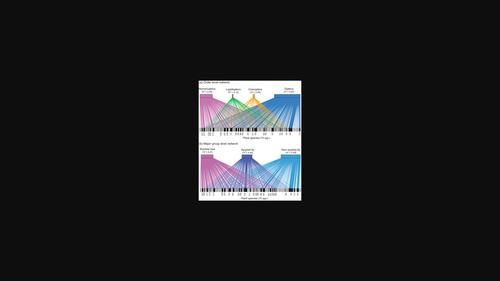当前位置:
X-MOL 学术
›
Ecol. Res.
›
论文详情
Our official English website, www.x-mol.net, welcomes your feedback! (Note: you will need to create a separate account there.)
Seasonal dynamics of floral composition and flower visitors in a subtropical alpine ecosystem in Taiwan
Ecological Research ( IF 2 ) Pub Date : 2023-10-18 , DOI: 10.1111/1440-1703.12426 Gaku Kudo, Tetsuo I. Kohyama, Kai-Hsiu Chen, Tsai-Wen Hsu, Chun-Neng Wang
Ecological Research ( IF 2 ) Pub Date : 2023-10-18 , DOI: 10.1111/1440-1703.12426 Gaku Kudo, Tetsuo I. Kohyama, Kai-Hsiu Chen, Tsai-Wen Hsu, Chun-Neng Wang

|
Flowering phenology of alpine plant communities and seasonal dynamics of flower visitors have been scarcely studied in the tropical/subtropical alpine regions. We report flowering phenology, flower production, and flower-visiting insects in an alpine site of central Taiwan. Throughout the research period (2017–2018), we recorded flowering phenology of 130 plant species, flower production of 81 species, and 15,127 insects visiting alpine flowers. Most of the alpine plants were visited by dipteran insects and/or hymenopteran insects. The seasonal patterns of flowering were more apparent in bee-visited plants compared to fly-visited plants in which the flowering of bee-visited plants clearly increased as the season progressed. About 63% of flower visitors were dipteran insects (syrphid and non-syrphid flies), and 30% were hymenopteran insects (mostly bumble-bee workers). Although the seasonal trend in fly abundance was less clear between years, bumble-bee abundance consistently increased in the middle to late seasons, reflecting colony development. There was a positive correlation between bee abundance and the number of flowering species of bee-visited plants, but there was no correlation between fly abundance and the number of flowering species of fly-visited plants throughout the season. These results suggest that the flowering phenology of subtropical alpine communities is influenced by the seasonal availability of pollinators. Bumble bees, syrphid flies, and non-syrphid flies had wide ranges of foraging flowers, but their niche overlap was relatively small. Because cold-adapted bumble bees are threatened by climate change in Taiwan, plant–pollinator interactions may be disturbed by global warming.
更新日期:2023-10-18



























 京公网安备 11010802027423号
京公网安备 11010802027423号